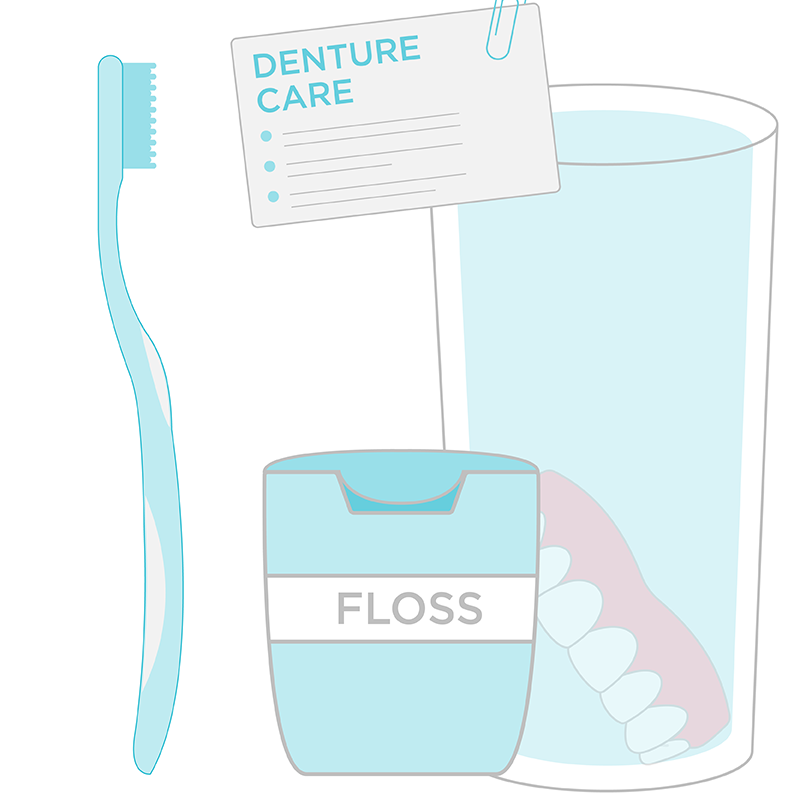
Despite advances in preventive dentistry, edentulism (not having any teeth) is still a major public health problem worldwide. More than 36 million Americans (about 10%) are edentulous, and 120 million (about 36%) are missing at least one tooth. Around 90% of edentulous persons have dentures. Therefore, proper care of dentures is integral to oral health.
Untreated tooth decay and gum disease are the primary causes of tooth loss. These conditions are very common in adults age 65 and older. Dentures provide edentulous patients a replacement for missing teeth caused by these oral health problems. Since adapting to dentures can be difficult, older adults should work towards prevention of tooth loss.
Wearing dentures can impact quality of life, nutrition, social interactions and overall health. Having missing teeth or wearing dentures can sometimes lead to poor nutrition because soft, easily chewed foods are preferred over fresh fruits and vegetables. Unhealthy eating habits can increase the risk for systemic diseases like diabetes, heart failure, high blood pressure, etc.
Here are a few do’s and don’ts for denture care:
To best adapt to dentures and to maintain your oral and overall health, it is very important to properly care for your dentures, just as you would your teeth and gums.
- Brush dentures daily to remove food and plaque and to help prevent permanent stains. Toothpastes and household cleansers are too rough on dentures. Use hand soap or mild dishwashing liquid to clean your dentures. Avoid hot water as it could warp your dentures.
- Use a soft bristled brush specifically made for cleaning dentures.
- Rinse your dentures after every meal.
- You should remove your dentures at night. This will give your gums and bones a chance to relax from the pressure of the dentures during the day.
- When not worn, dentures should be placed in water. This keeps them moist, which helps them keep their shape.
- Rinse dentures thoroughly before putting them back in your mouth, especially if using a denture-soaking solution.
- Consult your dentist for tips specific to your unique circumstances.
Be sure to visit your dentist regularly to:
- Check proper fit of your dentures.
- Evaluate of your mouth for signs of oral diseases including cancer.
- Have your remaining teeth and mouth professionally cleaned.
Remember, dentures help you to eat, speak and continue smiling! 😁
This information in this post is for general educational purposes only and does not warrant or represent any information as related to health as specifically appropriate for you. It is not intended to be medical advice or replace the relationship that you have with your health care providers. You should always seek medical advice on any diagnosis or treatment from a qualified health care provider. The information is provided “as is” without any representations or warranties, express or implied.
Subscribe now
Your address and personal information will be safely stored in our database. We do not share or sell this information with anyone. You can unsubscribe to this subscription at any time.






